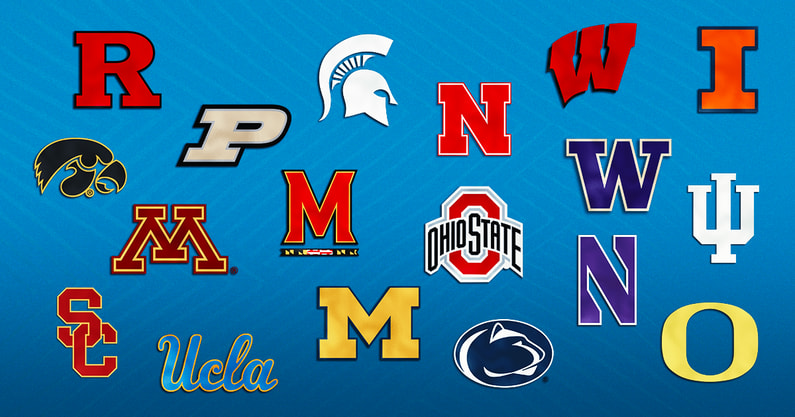Longstanding PREMINENTE strategic partner, Jill Tipograph, leads Tipograph Careers, the early career advisory and coaching practice she founded to guide students, as well as college graduates and young professionals, through the complicated labyrinth of career choice, job search, and workplace success. As a ‘go-to’ media resource, Jill’s contributions have been featured in national news outlets including the New York Times, Wall Street Journal, CNBC, ABC, Bloomberg, Fast Company, Inc., Monster, and New York Post. Jill is also a selected member of Forbes Coaches Council. She and her team of expert coaches work with their clients to launch and progress their early careers, creating a customized blueprint that helps motivated candidates align their career goals to who they are and who they can be.
In this week’s On Point with PREMINENTE interview, A College to Career Road Map, Jill shares her thoughts on the importance of a well-defined path to a successful job search journey and the tools she and her team employ to discover the right career fit for each client.
Since many of PREMINENTE’s clients are high school or college students, what steps should they be taking to put them on the right path to their dream career?
First, understanding the nuances of today’s career landscape is critical to success in career planning. A few striking statistics tell the story:
- There are more than 900 careers today, a 300%+ increase over past decades.
- About 60% of interns are offered a full-time position.
- College grads take on average 6+ months post-graduation to land their first position (in a good job market).
- 40%+ of recent grads are underemployed in their first job and become more underemployed years after.
- Employers seek skilled workers who are continuous agile learners.
Second, building your career isn’t like studying for an exam; you can’t cram and expect to be successful. It takes time. This includes optimizing high school years to maximize collegiate opportunities. Trialing different high school clubs, starting their own activity, taking classes in and out of high school to build new skills, job shadowing; this all allows students to discover more about themselves and build their first resume. Performing well in school and finding out early the things that they enjoy are important elements to finding and getting into the right fit college, where they can flourish. They want to make sure they attend a college where they can take classes and select majors that are relevant, develop faculty and mentor relationships, participate in meaningful extracurriculars that lead to more self-discovery and build skills that employers are seeking (soft and hard). The journey itself is as important as the outcomes.
Once in college, the transitions are significant: lifestyle and schedule adjustments, academic and extracurricular choices, building a new social life, career planning. It all needs to occur almost simultaneously. At Tipograph Careers, we look at freshman year as exploration, sophomore year as evolution, junior year as pursuit, senior year as formation. Each year has specific objectives and steps, leading to career refinement, and effective internship and job searches, with the ultimate goal to get hired and succeed in your career and workplace.
We also work with college graduates and young professionals who are at an inflection point in their career journeys, wondering if they’ve made the right choices and, if not, how to pivot. How do you advise young people at this stage?
It’s well-known that the majority of 20-somethings go through a quarter-life crisis or question their professional choices and wonder how to move forward. According to The Guardian, the quarter-life crisis affects 86% of millennials; this includes personal and professional unhappiness and lack of career clarity. Nearly 60% of employed adults say they are seeking a career change; people have an estimated 12 jobs in their working lives. It’s about your maturity catching up with who you are, what you’ve accomplished (or not), your personal lifestyle needs and taking stock of your life.
The first thing they should do is examine the choices they’ve made. As human beings we always evaluate our choices. Gen Z young professionals can and do pivot successfully. The pandemic normalized pivots for everyone. These young professionals should speak with others who are in careers that intrigue them, study job descriptions to identify skill gaps, and network deeply. More than 70% of jobs are achieved through networking, and 80% of jobs are obtained via the hidden job market (jobs that are not advertised).
What skills should students and young professionals focus on developing to prepare them for their early careers?
It is important to understand that employers hire based on skills. In addition to the more tangible technical skills required for a position, young adults need to develop the intangible softer skills that will enable them to stand out in a sea of competition. They need to develop and demonstrate collaboration, teamwork, communication, initiation, problem solving, curiosity, leadership, and resilience. Put to work the ones you are strong in; and try to master others. This can be achieved in school, work, and personal life. Form habits around volunteering, giving back and paying it forward, building on service efforts you have already started. Be curious and become continuous, agile, lifelong learners, as technology is always advancing changing jobs. Future employers want to understand how you behave and think, so they can envision you in their culture and teams.
How does the Tipograph Careers Early Career Blueprint Process work and what does the client gain from it?
After many years of career coaching, I observed that each client comes to us with varying degrees of career needs, preparedness, and readiness. Most clients tell us they do not know what they need to do to get hired or achieve career success. We evaluate their career clarity and where they are in their job search stages; their career assets and employable skills; interviewing and networking prowess; motivation and drive. We then design an early career customized blueprint for them, outlining what they need to do to achieve their professional objectives. This puts a framework around this overwhelming and daunting process, fraught with more rejection than most young people have experienced in the past. As a follow-up we provide career coaching by our accomplished coaches including concrete steps to help get them to their finish line.
If you could provide one piece of advice to a young person trying to decide on a career path, what would it be?
Look ahead and work backwards to start your early career journey. Do not confuse your passions with your vocation. Those who end up unhappy or dissatisfied in their career and/or job either chose a field or role they thought they would like because it relates to something they enjoy in their lifestyle, followed footsteps of someone else who is not them, or took a job to get paid because they were tired of the job search process and impatient to find the right fit. Take the time earlier in your life (perhaps later in high school or earlier in college) to map out how you can identify right fit careers and steps to shape an effective job search, particularly building relationships over time that will serve as a foundation for future career networking. This gives you the ability to learn from others and find mentors whom you can lean into later to help guide you to appropriate career opportunities.
It’s never too early to create a road map to your dream career. Connect with Tipograph Careers to learn more about their Early Career Coaching Process, customized blueprints for success, and take charge of your career journey.


